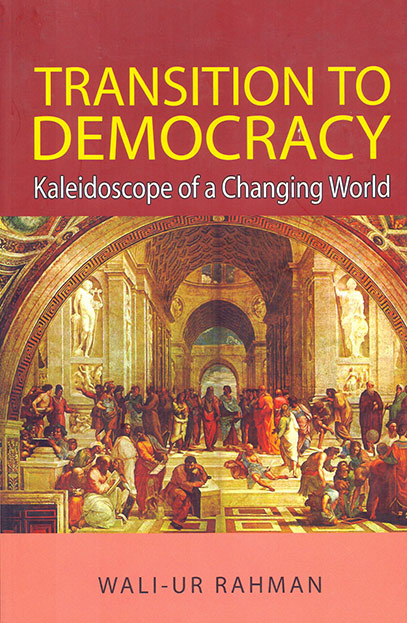- Shop
- Political Ideologies
- Transition to Democracy: Kaleidoscope of a Changing World
Transition to Democracy: Kaleidoscope of a Changing World
https://uplbooks.com/shop/9789848815182-transition-to-democracy-kaleidoscope-of-a-changing-world-8323 https://uplbooks.com/web/image/product.template/8323/image_1920?unique=3d813f3
| Language: English |
Tags :
Book Info
Transition to Democracy is a compilation of articles published in newspapers and magazines at home and abroad. The author writes on such developments which impinge on public policy issues and on strategic policies pursued by successive governments of Bangladesh. Two major political parties, the Awami League (AL) and the Bangladesh Nationalist Party (BNP), elected by the people one after the other, ruled the country with the pledge to promote democracy and the rule of law. The author through his incisive observation attempts to demonstrate that the country was dealt a severe blow with the brutal murder of the Father of the Nation Sheikh Mujibur Rahman on August 15, 1975. Several usurpers who seized state power after the assassination of Bangabandhu attempted to rule the country under the shadow of martial law or martial patronage. They amended the Constitution in order to clear the path to bring in the ‘politics of Islam’ to suit their purposes. In the process, they attempted to bury the ideals of the War of Liberation. But the people fought back to steer the Republic onto the path of democracy and democratic values. With the Fifth Amendment repealed by the Supreme Court of Bangladesh, the country is now moving towards upholding the ideals enshrined in the Constitution. People of Bangladesh are now set to achieving a democratic and tolerant society.

Wali-ur Rahman
Waliur Rahman, a diplomat, essayist, critic and translator, was born in Jessore, Bangladesh in 1942. Educated in Dhaka, Mr. Rahman enjoyed a fellowship at Trinity College, Oxford in 1974-75. Mr.Rahman had the rare privilege of piloting the admission of Bangladesh to the World Health Organization (WHO), the first United Nations Agency to admit the newly independent country Bangladesh as a member in May 1972. At that time he was the first Permanent Observer a.i. to the European Office of the United Nations in Geneva where he also witnessed the admission of Bangladesh to such UN Agencies as ILO, WMO, UPU, FAO, GATT, UNCTAD, IAEA and UNIDO. Since then Mr. Rahman has been deeply involved in the work of the International



